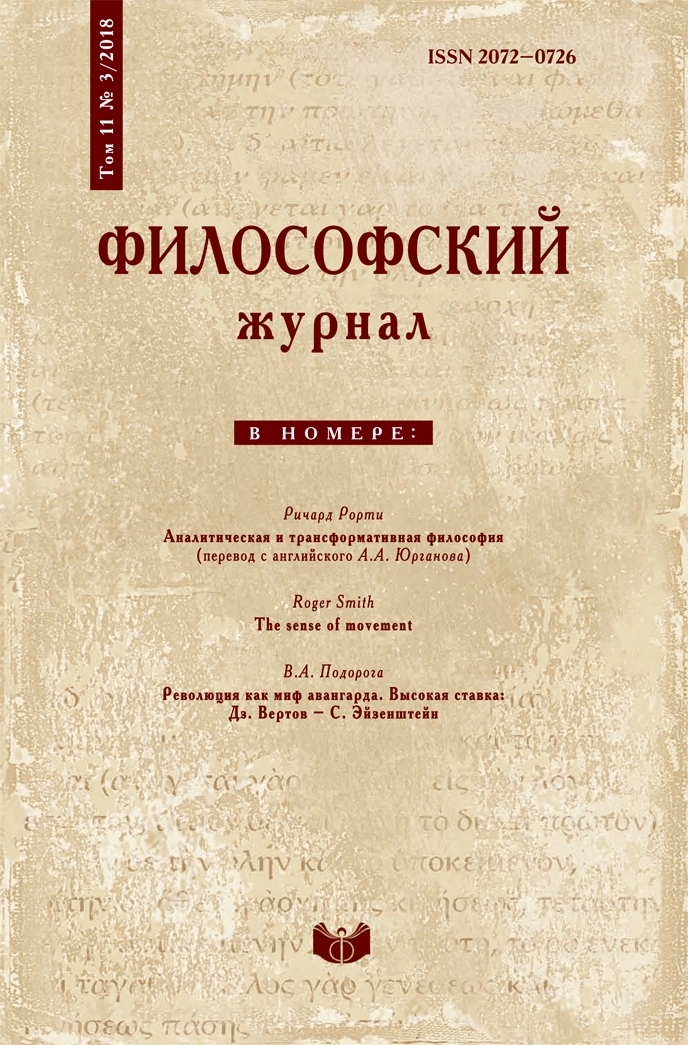Aesthetic egology
DOI:
https://doi.org/10.21146/2072-0726-2018-11-3-137-149Keywords:
aesthetics, creativity, art, science, cogito, egology, DescartesAbstract
The purpose of this article is to investigate the development of the aesthetic programme of Cartesianism and the way Cartesian interpretation of subjectivity has exposed, by transforming its 'metaphysical code', the problems of modern European culture. The author examines the structure of the aesthetic 'staging' of existence on the metaphysical arena of cogito ergo sum, where the idea behind the famous formula represents the result of a long evolution determined, among other things, by the poetics of self-evidence of the “I” which is at the heart of the artistic consciousness. Cogito as the ultimate foundation of the form of life prepares the ground for elaborating a new type of aesthetic theory which regards art as a sui generis cordiality of life; this theory constitutes the conditions for the “inner” self-perception of the artist. Of special interest is Descartes's approach to the analysis of consciousness in the relation between science and art, which shows great flexibility in the pursuit to reveal the mode of existence of art in various intelligible types of convergence. From here it becomes possible to trace the origin of egological tradition in the philosophy of art.






